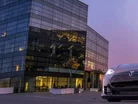Tesla and BHP sign contract in sustainable supply chain move

In less than eight months, Tesla Inc has secured three separate agreements ensuring the metal used in its batteries are supplied by groups with a focus on ‘sustainable’ production. Following long-term supply deals such as that with Vale’s Goro mine in New Caledonia, this latest agreement will also see the two companies collaborate on identifying opportunities to increase the use of renewable energy and battery storage.
BHP, one of the world leaders in sustainable and low-carbon emission production, is to provide Tesla with nickel produced at its Australian asset, Nickel West.
“We are delighted to sign this agreement with Tesla Inc and to collaborate with them on ways to make the battery supply chain more sustainable through our shared focus on technology and innovation,” says BHP Chief Commercial Officer, Vandita Pant.
The race speeds up for mining to go green
As demand for electric vehicles continues to grow, so too does the demand for sustainable production. It’s estimated that the amount of nickel required in the coming decade could grow by over 500%, and producing that quantity of nickel comes with added environmental risks. As a result, to keep in line with the call for sustainability by Chief Executive Elon Musk, Tesla has prioritised searching for alternative low-carbon suppliers in developed countries and distanced itself from Chinese companies who control nickel production in Indonesia; the world’s largest producer of nickel favouring the use of a less environmentally-friendly coal process.
Last July, Musk announced he is willing to provide a “giant contract for a long period of time” to companies able to mine “efficiently and in an environmentally sensitive way.”
While no details have yet been given on the scale of the deal between BHP and Tesla, Analyst at Benchmark Mineral Intelligence, Caspar Rawles, estimates it to be up to 18,000 tonnes of nickel annually.
Currently, Nickel West produces around 80,000 tonnes of nickel a year, which is enough for approximately 2m batteries and is set to begin the production of nickel sulphate this year. This move would also mean the metal bypassing shipment to refineries in China.
BHP to set sights on a more sustainable future
The companies are also set to combine forces to trace battery raw materials such as nickel, cobalt, and lithium using Blockchain - the technology behind another of Musk’s business endeavours: Bitcoin. It’s hoped the partnership will result in lowering the carbon footprint and increasing the renewable energy output of future BHP mining operations.
Edgar Bast, President of BHP Minerals Australia, is confident about the company’s increasingly greener future.
“BHP produces some of the lowest carbon intensity nickel in the world, and we are on the pathway to net-zero at our operations. Sustainable, reliable production of quality nickel will be essential to meeting demand from sustainable energy producers like Tesla Inc.
“The investments we have made in our assets and our pursuit of commodities like nickel will help support global decarbonisation and position us to generate long-term value for business.”
Most recently, it's been rumoured that BHP is in talks to pull out of a potential multi-billion dollar contract in an aim to ditch fossil fuels in favour of an environmental approach to future projects



